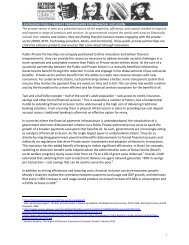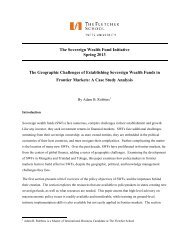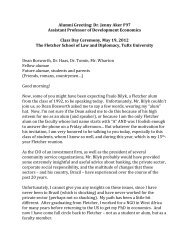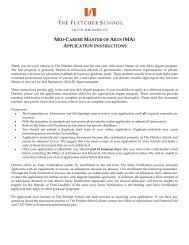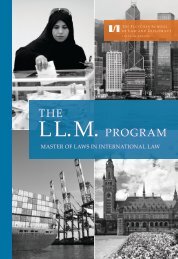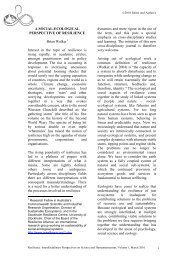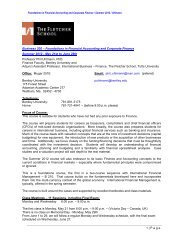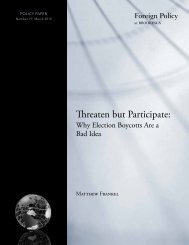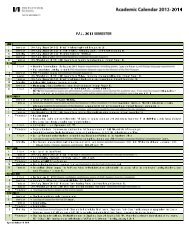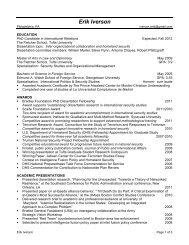Fletcher School of Law and Diplomacy - Tufts University
Fletcher School of Law and Diplomacy - Tufts University
Fletcher School of Law and Diplomacy - Tufts University
- No tags were found...
You also want an ePaper? Increase the reach of your titles
YUMPU automatically turns print PDFs into web optimized ePapers that Google loves.
“Policymakers should have at least arudimentary knowledge <strong>of</strong> international lawthemselves because they may not havea lawyer at their side when they need one.”Pr<strong>of</strong>essor Michael J. GlennonThe most potentially catastrophic problem facing the world today is the proliferation<strong>of</strong> weapons <strong>of</strong> mass destruction. There is no close second.The world as we know it could be transformed overnight by the detonation <strong>of</strong>a biological or nuclear device in a major city. How to keep the lid on these weaponsis the biggest unanswered question for international law. The problem is that yesterday’ssolutions are not necessarily applicable today, when interstate conflict is lesscommon but potentially even more calamitous.The Cold War era, particularly the Vietnam War, sparked my interest inpolitics, which in turn led to my interest in international law. The link betweentheory <strong>and</strong> practice became apparent to me during the Carter administration,when I served as legal counsel to the Senate Foreign Relations Committee. Theexperience <strong>of</strong>fered a glimpse beyond the public personas <strong>of</strong> the country’s elitelawmaking body. It gave me a sense <strong>of</strong> how essential it is in international law todistinguish between rules that are real <strong>and</strong> those that are make-believe. Behindclosed doors, senators are no-nonsense.Students need to have that same hard-headedness. I point out to them thatunderst<strong>and</strong>ing the field <strong>of</strong> international law is a necessity. Policymakers should haveat least a rudimentary knowledge <strong>of</strong> international law themselves because they maynot have a lawyer at their side when they need one. International law cannot beunderstood without a broader interdisciplinary context <strong>and</strong> <strong>Fletcher</strong>’s curriculum<strong>of</strong>fers a distinct advantage in that regard.Michael J. Glennon, Pr<strong>of</strong>essor <strong>of</strong> International <strong>Law</strong>, has published numerous articles on international law, terrorism, U.S. hegemony, <strong>and</strong> theuse <strong>of</strong> force in Foreign Affairs, The New York Times, The Washington Post, the International Herald Tribune, the Financial Times, the Woodrow WilsonQuarterly, <strong>and</strong> The Harvard Journal <strong>of</strong> <strong>Law</strong> <strong>and</strong> Public Policy.(27)



